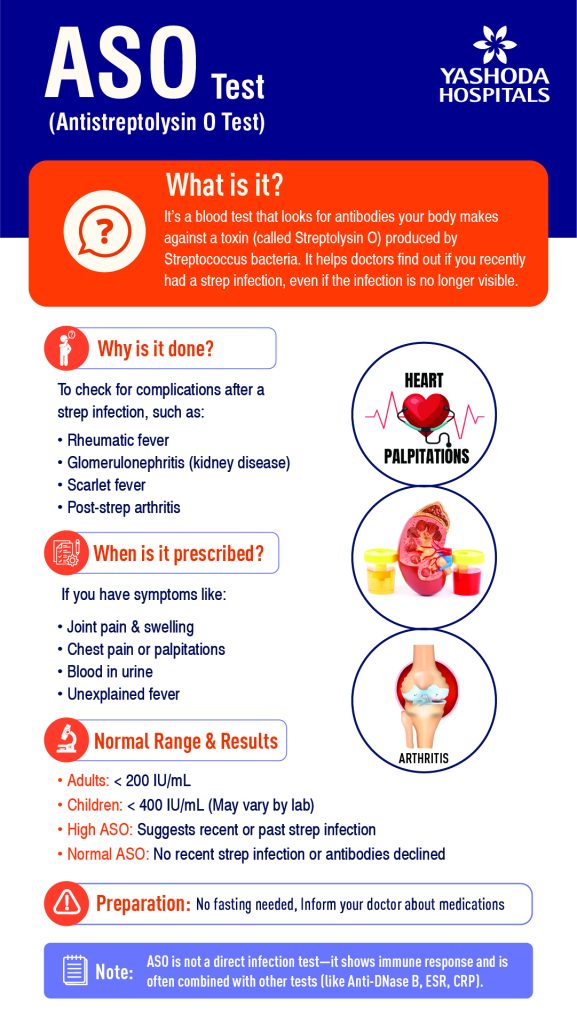What is ASO test?
The full form of the ASO test is the antistreptolysin O titer test. The ASO test is used to measure the antibodies that are produced by your body when it comes in contact with the toxin called streptolysin O. This toxin is created by group A Streptococcus (GAS) bacteria. As a response to the GAS bacteria, your body produces antistreptolysin O antibodies.
The antistreptolysin O titer test will reveal whether you had a strep infection by measuring the level of antistreptolysin antibodies in the blood. The test results will help your doctor avoid the chances of a post-streptococcal complication.
Understanding the ASO test results
An ASO test measures the level of antibodies produced by the body in response to a streptococcal infection. The ASO test normal range varies depending on age, with adults having a normal value of less than 200, while children under five years have a normal value of less than 100.
If your ASO test results are higher than the normal range, it suggests that you had a recent streptococcal infection. On the other hand, if your ASO test results are within the normal range but you still exhibit symptoms of a post-streptococcal complication, your doctor may recommend repeating the test to avoid missing any potential complications.
In conclusion, the ASO test results can help doctors diagnose and manage streptococcal infections and prevent complications. If you have any concerns or questions about your ASO test results, it is important to consult your doctor for further guidance.





 Appointment
Appointment WhatsApp
WhatsApp Call
Call More
More